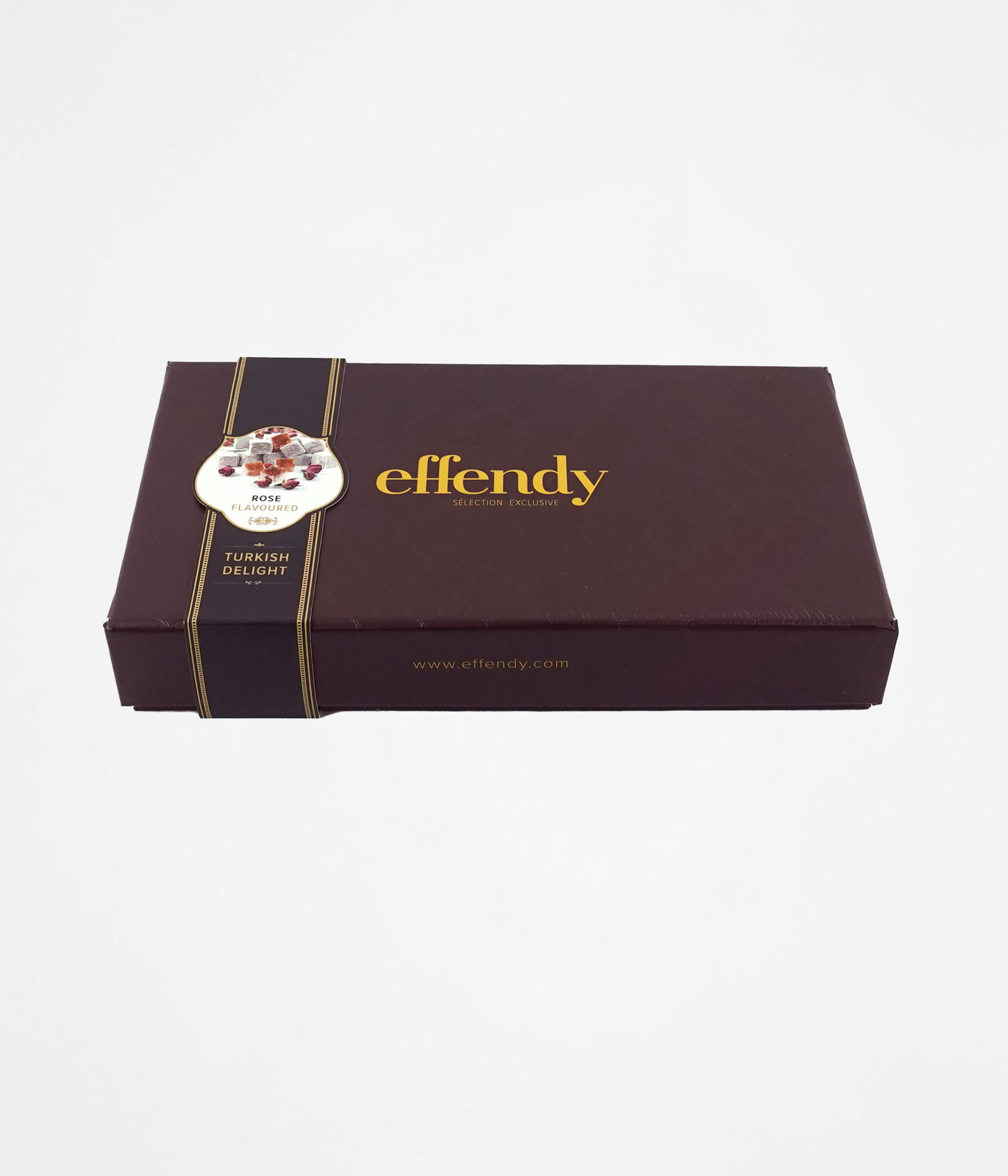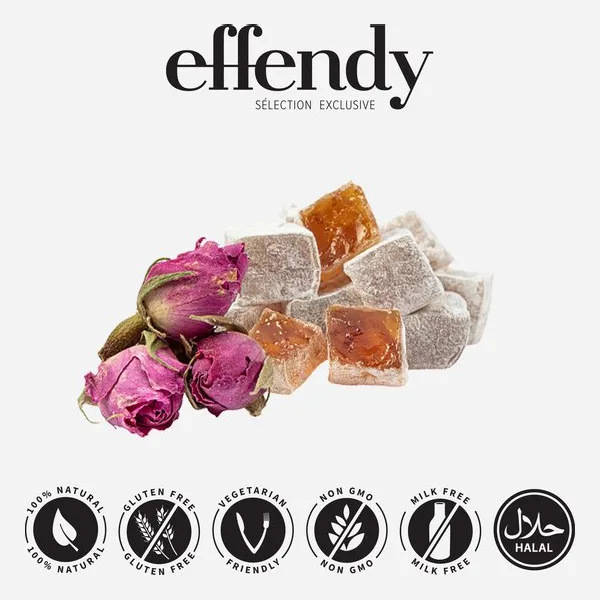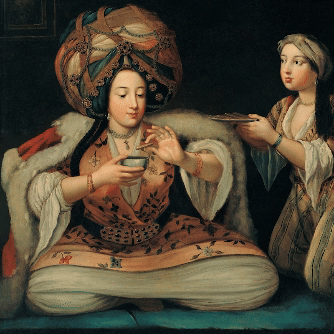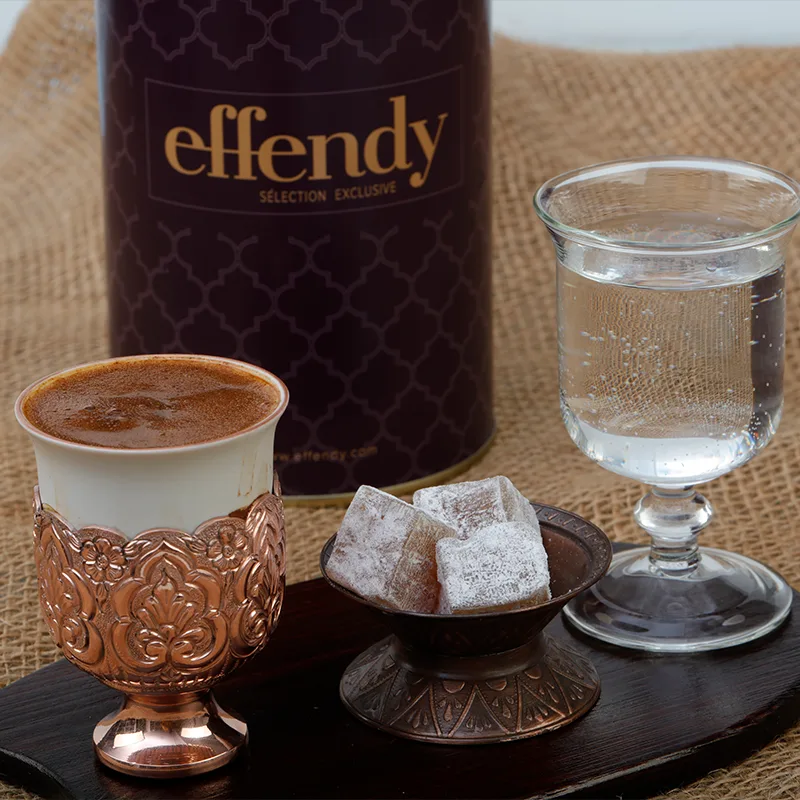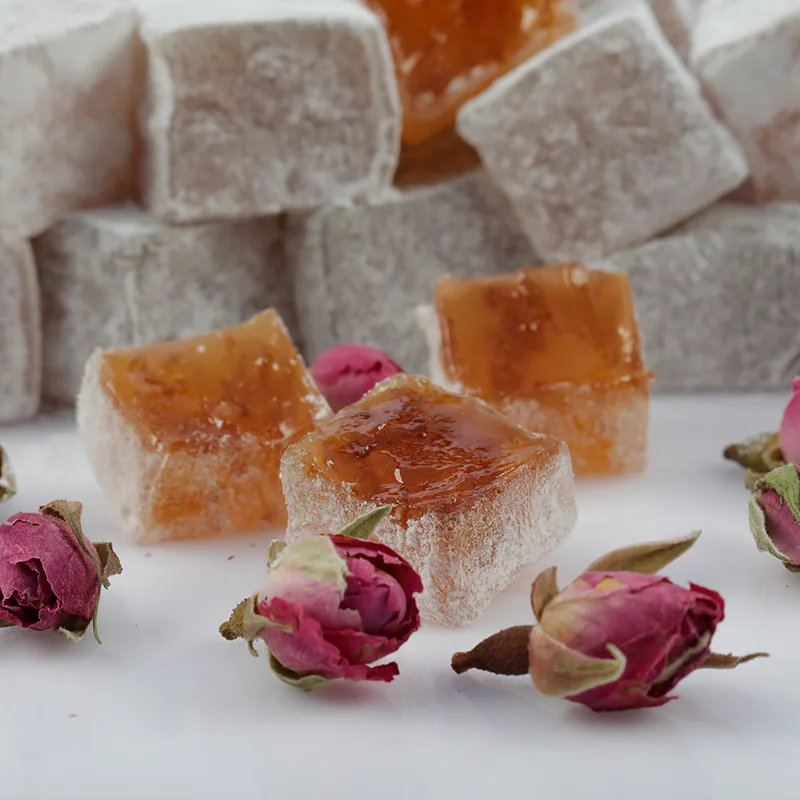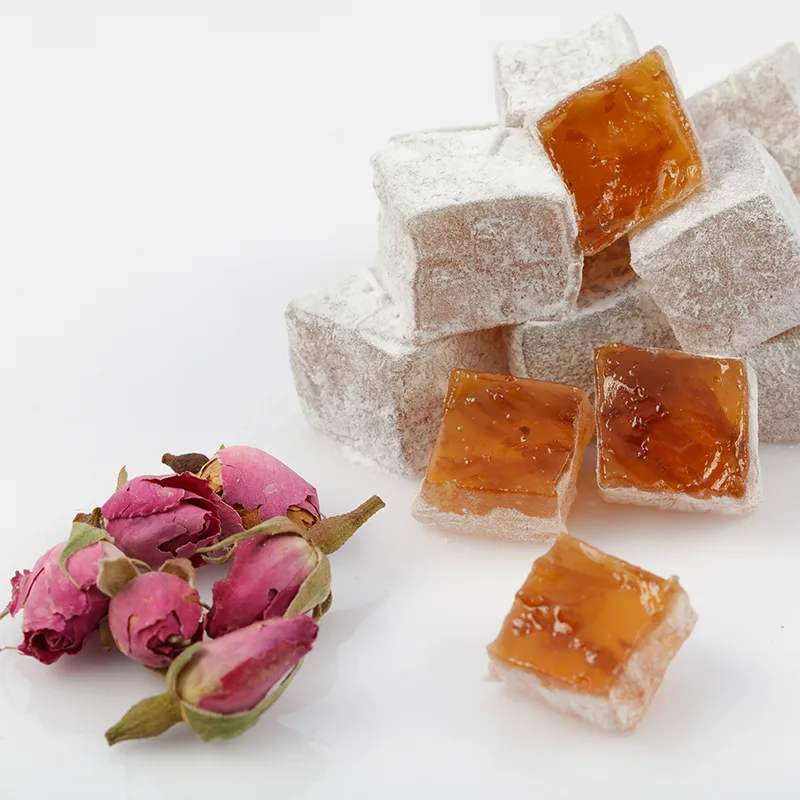The Sweet Luxury of the Ottoman Empire
Turkish Delight, or “Lokum”, was first crafted in the 16th century, when the Ottoman court demanded a confection as elegant and refined as their royal palaces. The rose-flavored variety quickly became the most coveted and luxurious, symbolizing love, beauty, and sophistication.
In Ottoman culture, roses were more than just flowers—they were a symbol of divine beauty and purity. Used in royal gardens, perfumes, and desserts, the essence of roses was reserved for the elite and the nobility.
Why Rose-Flavored Turkish Delight Was So Special in Ottoman Times:
- A Symbol of Luxury – Often served to sultans, diplomats, and esteemed guests.
- Aromatic & Healing – Roses were believed to have calming and therapeutic properties, making them a favored ingredient in imperial kitchens.
- Paired with Turkish Coffee & Fine Teas – A signature delicacy in Ottoman palaces, enjoyed with rich, dark coffee or delicate floral teas.
- A Gift of Elegance – Exchanged as a sign of prestige and appreciation.
To this day, rose-flavored Turkish Delight remains one of the most sought-after flavors, offering a taste of royal indulgence and timeless tradition.

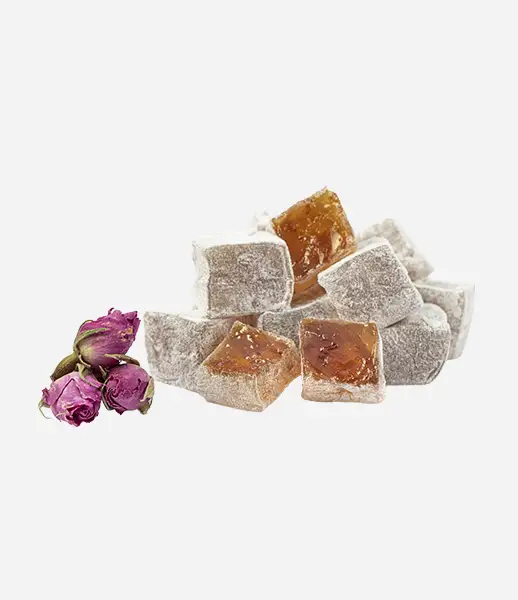
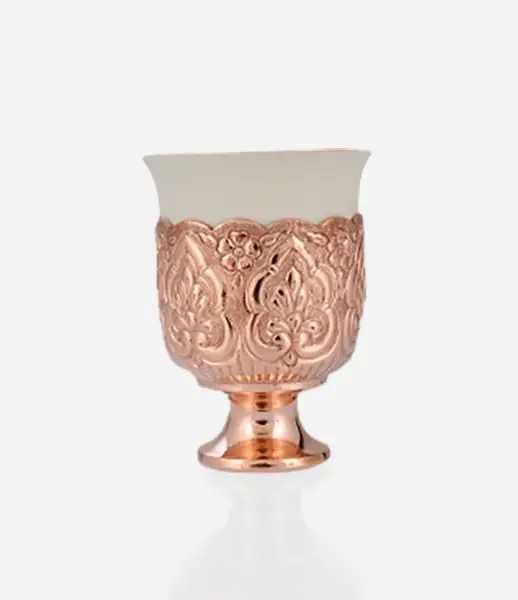
 The Journey of Coffee to Europe
The Journey of Coffee to Europe  The Forbidden Brew
The Forbidden Brew  The Ottoman Secret Behind Turkish Delight
The Ottoman Secret Behind Turkish Delight 
